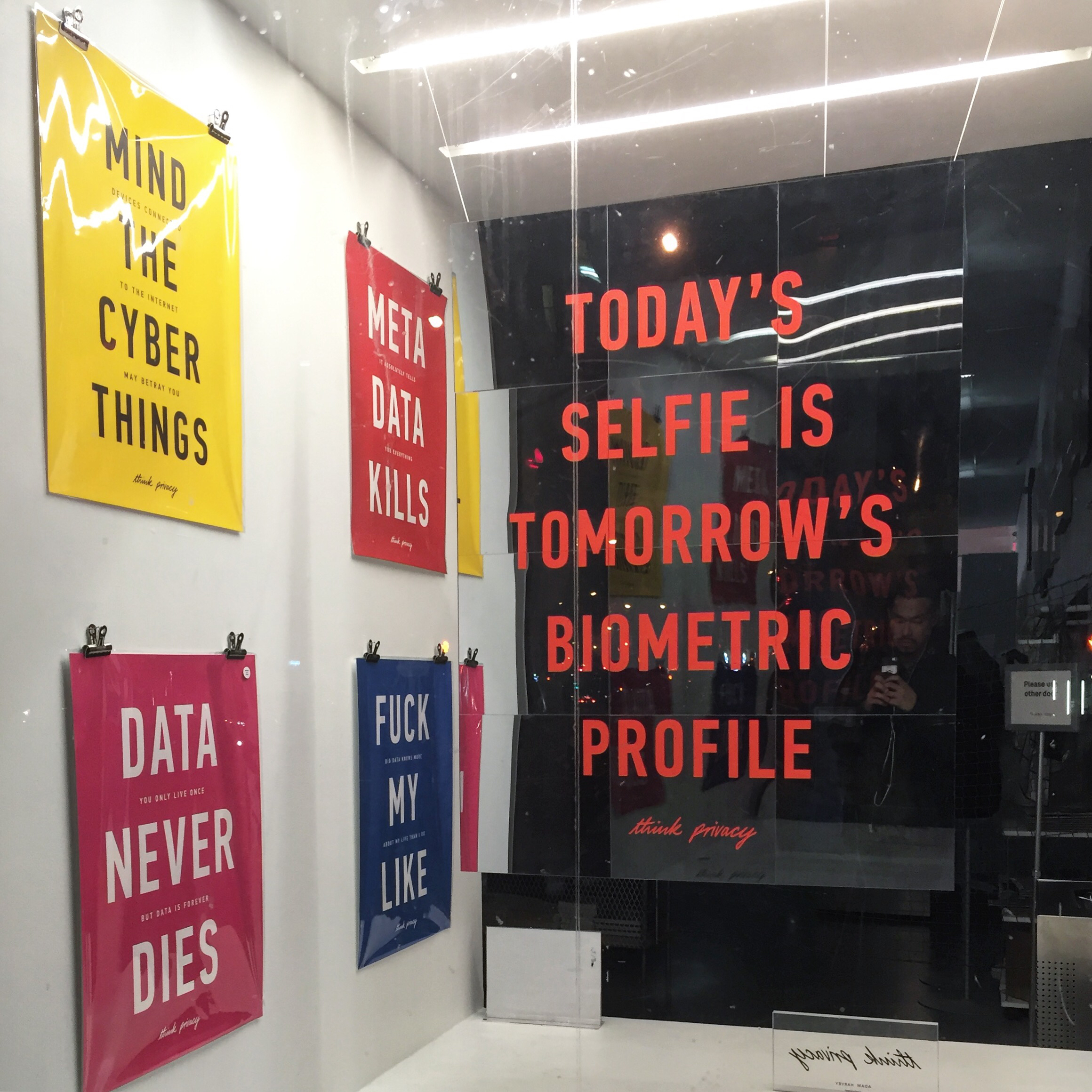
A screenshot from the Black Mirror episode “Nosedive”
The brilliant television series Black Mirror is described as “the way we might be living in 10 minutes’ time if we’re clumsy” by its creator Charlie Brooker. Yesterday, with a handful of new announcements from Apple, the privacy Doomsday Clock just ticked a few minutes closer to midnight.
Hyperbolic? Maybe. But between the new Face ID technology of the iPhone X and the biometric measurement of the latest Apple Watch, users are going to be voluntarily conceding a lot of personal data, and quite passively so. In theory, both are very dangerous things to normalize; but with Apple’s smartphone and watch market share, it may very well become practice sooner rather than later.
So what’s the big deal? We take selfies every day, and Face ID is just a 3D selfie, right?
Well…
Today’s Selfie is Tomorrow’s Biometric Profile
That was a quote from a piece of art hanging in the window of the New Museum in New York City that I chanced upon back in March 2016:
Selfies may seem harmless now, but they are the proverbial foot in the door for lower and lower expectations of privacy. Fifteen years ago, nobody took selfies. If you did, it was as a joke and very few people (if any) would ever see it because you had to develop the film and they were embarrassing. Nowadays, we have high quality cameras within arm’s reach at all times, making it normal to take a photo of yourself. Face ID was just one minute past the introduction of the front-facing camera. The more photos of ourselves we publish on the internet for corporations and institutions to consume, the more we expose ourselves.
Or as famed media/communications theorist Marshall McLuhan put it:
“Publication is a self-invasion of privacy. The more the data banks record about each one of us, the less we exist.”
Speaking of biometrics, remember how Apple said their latest Watch would be able to detect whether or not your vitals are normal at any given moment? Hand that information over to the proper authorities, and you’ve got yourself a real-time lie detector. Sure, polygraphs are notoriously ineffective and usually not admissible in court (regardless of what TV shows and movies have you believe). The law is constantly playing catch-up with technology, and Apple just made it easier to facilitate government overreach.
You can’t find the boundaries until someone oversteps them
Let’s take a look at Apple’s contemporary, Facebook. Facebook has been honing its facial recognition technology for years now.
So has the FBI.
The difference is that Facebook’s tech reportedly operates at a staggering 98% accuracy, which is far better than the FBI’s because the government database mostly consists of mugshot-style photos and security camera footage. In contrast, Facebook stores billions of first-party-verified photos of its users from multiple angles, backed by a learning program that can continually refine itself with every single upload.
What’s one minute further than Facebook’s database and algorithms? How about a camera phone that is capable of performing an infrared scan of your face and its unique contours? One with a 1 in a million chance of being fooled. One whose camera you use to unlock your phone dozens of times each day, 365 days a year. That’s a hell of a lot of information.
Given a few months and billions of data points, Apple may end up with the most advanced facial recognition software in the world. Apple touts their “neural network” as a benefit, but it should be interpreted as a warning sign.
Not to mention this other potential security flaw that made its way around Twitter concurrently with the Apple Event:
So all the police have to do is hold your phone up to your face while you are in cuffs then? Maybe not the best idea, Apple. https://t.co/Jk7Fz8o7fH
— Jonathan McIntosh (@radicalbytes) September 12, 2017
What’s stopping Apple from going full Black Mirror?
Right now, the only thing stopping Apple from becoming a willing surveillance arm of the government is Apple itself. Giving credit where credit’s due, Apple did once refuse FBI orders to unlock the phones of the San Bernardino domestic terrorists back in 2015. And they also denied a request from the DOJ to wiretap iMessage/Facetime, while in the same breath confirming that they had the capability to read and listen to our conversations (so… thanks, I guess?).
To quell our fears at Tuesday’s Event, Apple did say that the personally identifiable data will only be available locally on your devices.
Appl


